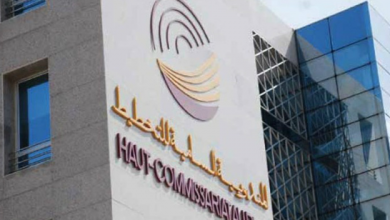Algeria and Silent Normalization… When Statements Say What Slogans Hide: Tebboune Implicitly Recognizes Israel

By ALDAR / Iman Alaoui
It is a different kind of normalization that is quietly taking hold, under the veil of diplomacy and ambiguous phrasing—a normalization that requires neither embassies nor raised flags, but one that suffices to slip into a paragraph of a joint political statement to signify implicit recognition of a “state” at the expense of a persisting tragedy.

In the final communiqué issued following the meeting between Abdelmadjid Tebboune and the President of the Italian Council of Ministers in Rome, a call was made in favor of the “two-state solution” and the “guarantee of humanitarian security in Gaza.” An explicit phrase appears in the statement, implying a tacit recognition of Israel, despite the Algerian regime’s official rhetoric proclaiming its steadfast support for the Palestinian cause and its legitimate rights.
Tebboune himself, who just days earlier had declared, “With Palestine, right or wrong,” signed in Rome in favor of a two-state solution. Thus, he addresses the truth while hiding behind a curtain.
The diplomatic language used in international communiqués is often carefully crafted and does not escape the notice of political observers. Terms such as “two-state solution,” “sustainable security,” or “permanent ceasefire” may appear humanitarian on the surface, but they contain within them a legitimization of the idea of dividing the land with the occupier, and of suspending the conflict rather than resolving it at its root.
In this context, “normalization” no longer needs to pass through Tel Aviv. It suffices for it to be blessed from afar, in world capitals, through veiled expressions that promote a solution favoring the more powerful party at the expense of the historical victim.
What draws attention in this Algerian-Italian communiqué is Algeria’s signature—a country that has always publicly displayed unwavering support for Palestine and an unequivocal rejection of any normalization with Israel. This contradiction between official discourse and concrete behavior cannot go unnoticed and opens the door to legitimate questions about the limits of so-called “constant” positions once they enter the negotiation room.
Normalization no longer needs to be openly displayed. It slips through documents and communiqués ratified by formal political consensus, masking a clear diplomatic complicity—as was the case during the meeting between Tebboune and the Italian Prime Minister in Rome.
Between flamboyant slogans and carefully worded statements, a truth is being whispered without ever being clearly spoken: the Palestinian issue is being redefined behind closed doors, by pens that speak of a “peace” that never arrives, and of “solutions” that ignore the deep roots of injustice. And normalization, whatever form it takes, remains normalization—whether it is declared or written behind a curtain.





